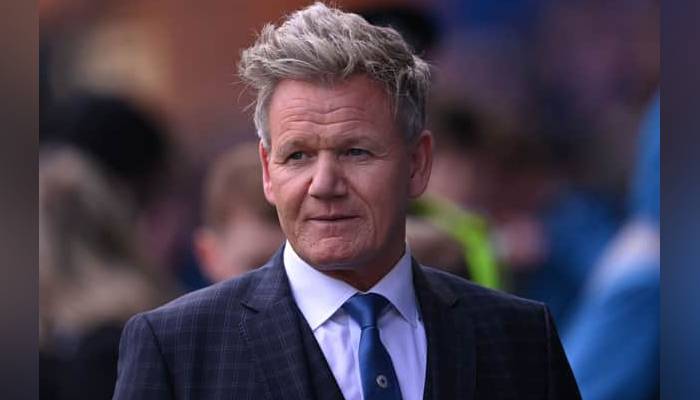As the newest policymaker at the Bank of England responsible for setting interest rates, Swati Dhingra can see a problem. Britain’s economy is heading for a lengthy and painful recession, while Brexit is making matters worse.
After a year of the central bank driving up borrowing costs – the equivalent of stamping hard on the economic brakes – to tackle rampant inflation, the London School of Economics academic worries that much tougher action could intensify the crash.
Speaking to the Observer in her first media interview since joining the Bank’s nine-member monetary policy committee (MPC) in August, she says: “You do see a much deeper and a longer recession with rates being much higher. That is what I think we should all be worried about … are we going to end up lengthening and deepening the recession if the tightening continues at the pace it is?”
The Bank has raised borrowing costs eight times in succession over the past year in response to sky-high inflation, lifting the official interest rate to 3% – the highest it has been since the 2008 financial crisis.
As a leading expert in international trade who wrote extensively on Brexit before joining the Bank, Dhingra says the consequences of leaving the EU – including red tape and delays at the borders, a weaker pound and stalling business investment – have worsened Britain’s economic slump. While she believes Russia’s war in Ukraine and the resulting eye-watering energy bills are causing far more damage, she says Brexit is becoming increasingly hard to ignore.
“Whether you look at the pre-referendum assessments, whether you look at the post-referendum … assessments, it was pretty clear that there was going to be an economic cost. Now is it moving in line with what people thought? I think so.”
It should be sobering for people like me to think about what damage is going on in terms of people’s living standardsSwati Dhingra
Before the MPC’s next meeting on 15 December, City economists are betting the central bank’s most aggressive tightening cycle in decades still has further to run, as it fights to squeeze 11% inflation out of the system. Sitting in her oak-panelled office in Threadneedle Street, the Indian-born economist is coy about how she will vote. However, it’s clear an “optimal stopping point” is nearing, and investors are getting ahead of themselves with rate forecasts of 4.5% next year. “The market is probably underestimating what damage that might cause to the UK economy,” she says.
Dhingra has used her first two votes since joining the MPC to push for a more cautious approach than most of her colleagues – including the Bank’s governor, Andrew Bailey – to advocate a slower pace of rate increases. That isn’t to say she is complacent about the damage of high inflation.
“I think given that people are making comparisons to previous oil shocks and what damage they did to the economy, it should be very sobering for people like me to think about what damage is going on already in terms of people’s living standards,” she says.
“I didn’t think that I would hear about fuel poverty and child poverty in this country. I thought that was behind me, coming from India. But the fact that we’re hearing that today, it’s absolutely tragic.”
Raised about 100 miles north of Delhi in the city of Saharanpur in Uttar Pradesh, Dhingra was born to parents who were refugees from Pakistan after the 1947 partition of India. Today they own a small textile business, buying and selling saris and shawls. “They have absolutely no idea what I do,” she says. “I had to explain to my father what the Reserve Bank of India does, how they set their interest rates, and how that’s like the role I’m going to be taking.”
An economics graduate from the University of Delhi, before studying in Wisconsin and Princeton in the US, she moved to the UK to take her job at the LSE a decade ago in the aftermath of the financial crisis.
Given her high-profile academic work on Brexit, Dhingra was surprised when the call came from Rishi Sunak in May asking her to sit on the MPC, less than two months before he resigned as chancellor. She and her LSE colleagues had written a report before the December 2019 general election arguing: “From an economic perspective, the best policy would be to cancel Brexit.”
As a public servant, she says it’s no longer her place to comment on government decisions. Still, her research has been vindicated: “I am not going to reopen the debate with others who don’t agree with our view. [But] this is fairly sort of standard now to think about the Brexit costs in these ways.”
More evidence on the damage emerged last week, in a study from her colleagues at the LSE showing Brexit had added almost £6bn to UK food bills in the two years to the end of 2021. Dhingra says energy costs are by far the biggest contributor to food and drink inflation having hit its highest rate since 1977, but Brexit is also a factor.
“Three-quarters of imported food in the UK comes from the EU. Which means, naturally, if non-tariff barriers start to kick in there, we are going to see that – not fully, but manifest to some degree – in food prices.”
However, Dhingra is more worried about the slowing British economy. Households struggling with soaring food and energy bills have started reining in spending. GDP shrank by 0.2% in the third quarter, and is likely to
CV
Age 42
Family Lives with her partner, who is also an economist at the LSE, in Islington, north London: “I live in Jeremy Corbyn-land.”
Education Graduated from the University of Delhi and the University of Wisconsin-Madison; post-doctoral fellowship at Princeton University.
Pay £159,700 as a member of the monetary policy committee.
Last holiday In Wales, near the Brecon Beacons, having visited the area twice since September. “I’m used to a billion people [having grown up in India], so it feels very quiet.”
How she relaxes Going to the theatre in London. “That’s something you simply don’t get outside big cities. Mostly I grew up in small towns, so I thought the theatre was incredible.”
fall again for a second consecutive quarter in the final months of 2022 – the technical definition of a recession.
To Dhingra’s mind, there are few signs from Britain’s jobs market that workers’ demanding higher wages might risk persistently high inflation. Others, including her boss Bailey, have warned employees pushing for bigger pay rises could risk a “wage-price spiral”, whereby pay rises force companies to raise their prices, making inflation self-perpetuating.
“A wage-price spiral would mean wages should be above inflation,” says Dhingra. While average annual pay growth has strengthened to about 6%, it remains significantly below 11% inflation. “Given that real wages are falling, that’s indicative that we’re not there at a wage-price-spiral point yet.”
With higher interest rates, and households under pressure from soaring living costs, she expects that inflation will begin to fade next year as the economy comes under severe strain.
Dhingra says the Bank’s business surveys suggest company investment could fall by 8% and employment by 2% over the next two years, something City investors, who are betting on much more aggressive interest rate increases, are not taking sufficiently into consideration.
“These are not trivial numbers. The market has clearly not realised how pessimistic that could be for the UK economy,” she says. “The economic slowdown is here.”
https://news.google.com/__i/rss/rd/articles/CBMie2h0dHBzOi8vd3d3LnRoZWd1YXJkaWFuLmNvbS9idXNpbmVzcy8yMDIyL2RlYy8wMy9zd2F0aS1kaGluZ3JhLWJhbmstb2YtZW5nbGFuZC1yZWNlc3Npb24taW5mbGF0aW9uLWludGVyZXN0LXJhdGUtdWstZWNvbm9tedIBe2h0dHBzOi8vYW1wLnRoZWd1YXJkaWFuLmNvbS9idXNpbmVzcy8yMDIyL2RlYy8wMy9zd2F0aS1kaGluZ3JhLWJhbmstb2YtZW5nbGFuZC1yZWNlc3Npb24taW5mbGF0aW9uLWludGVyZXN0LXJhdGUtdWstZWNvbm9teQ?oc=5




